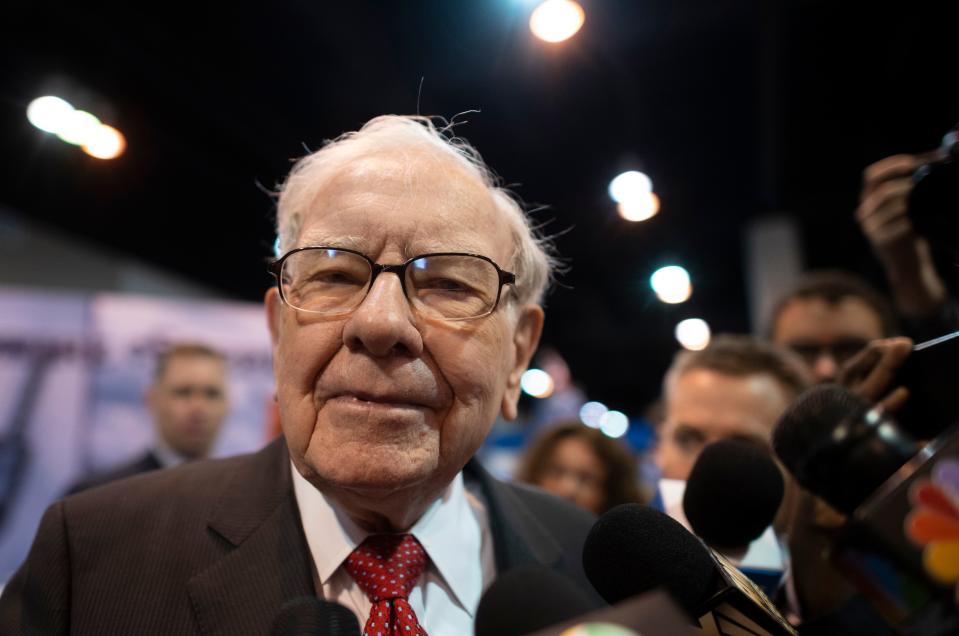Warren Buffett offers key retirement strategy for Berkshire Hathaway shareholders
Investors looking to free up cash when they’re on the brink of retirement may want to consider converting their Berkshire Hathaway shares, Warren Buffett advised a longtime shareholder at the company’s annual shareholders meeting.
The investor wrote in that he was worried about incurring a large tax rate when liquidating his investments in Class A shares.
“Say the average price has been about $300,000 this year. And I’m sitting on a $200,000 capital gains liability for each share,” the investor from Boca Raton, Florida, wrote. “If I need $60,000 in additional cash during my retirement, I need to sell a full share and get hit with $200,000 tax liability.”
In response, Buffett brought up class conversions, a solution he uses every July when he gives money away to five foundations.

“So I would say that if you want to do anything in terms of raising cash and you’ve got a lot of A shares, take one or two shares of A, and plenty of people I know have done this, and just cash it in and turn it into B,” Buffett said. “Give yourself whatever amount of cash you want to get.”
Both Class A and Class B shares refer to different types of shares companies offer. Class A shares typically come with greater voting rights for shareholders than Class B and also pays dividends first.
Companies divide up stock into classes so that senior management can exert more control over sensitive decisions regarding the firm. Both these stock classes differ from preferred shares, which don’t offer their shareholders voting rights, but instead prioritize them when it comes to receiving dividends.
‘Never going to give the A shares an advantage over the B’
While Berkshire Hathaway’s Class A stocks are priced higher than Class B shares and have greater voting power, Warren said, in the long run, Class A shares aren’t necessarily a better option.
“The A shares have a different voting power,” Buffett said. “In any event, we’re never going to give the A shares an advantage over the B.”
Berkshire Class A shares can’t be split like Class B shares. To improve trading between buyers and sellers, companies conduct stock splits, which issue more shares to current shareholders, and can be enticing for investors.

Investors with Class B shares also are free of tax liabilities, such as when they transfer their stocks to a loved one.
For retirees needing to free up cash during their golden years, it’s easier to cash out a smaller amount of money using the lower-priced Class B shares versus the more expensive Class A ones.
“They used to have an advantage in a shareholder designated contribution program that we had, but that goes way back in time, and that doesn’t exist anymore,” Buffett said. “So that the B and the A are going to get treated exactly the same over time.”
Dhara is a writer for Cashay and Yahoo Money. Follow her on Twitter @dsinghx.
Read more information and tips in our Retirement Planning section
Read more personal finance information, news, and tips on Cashay




